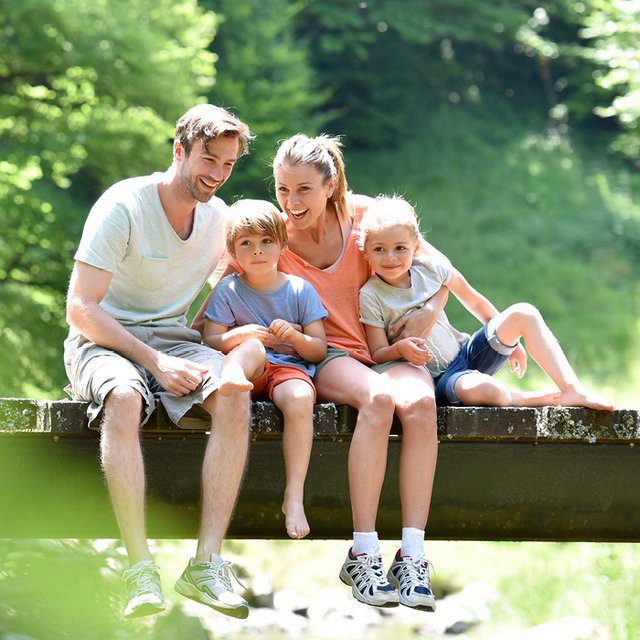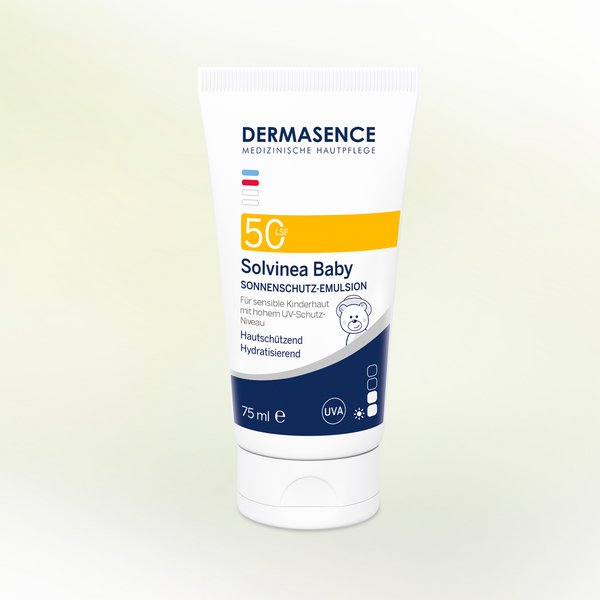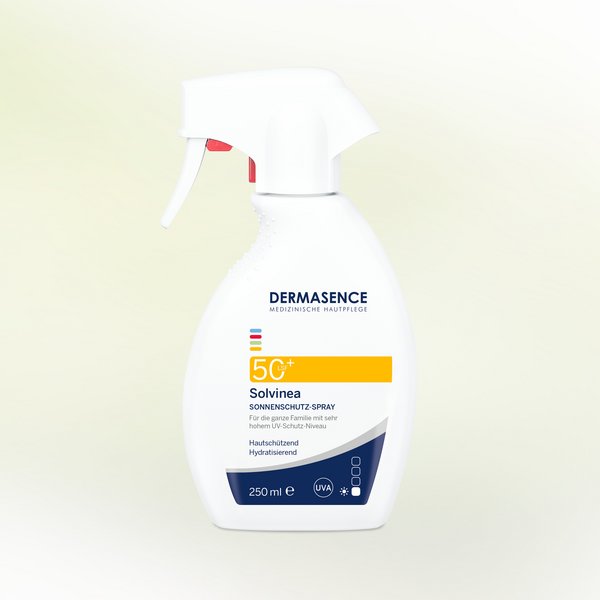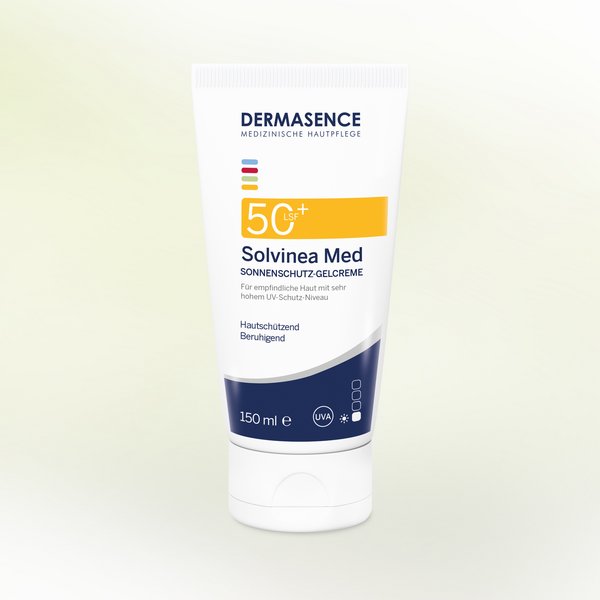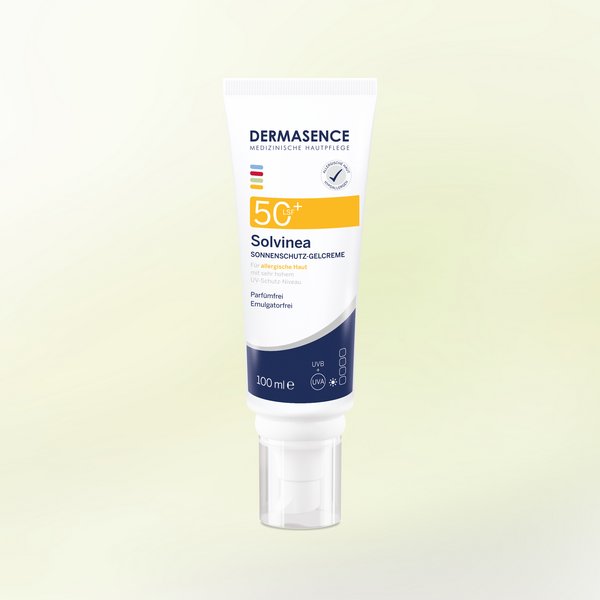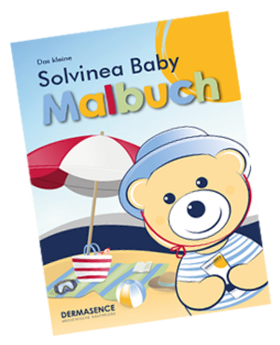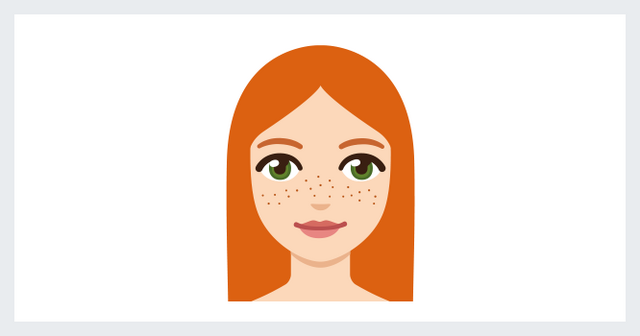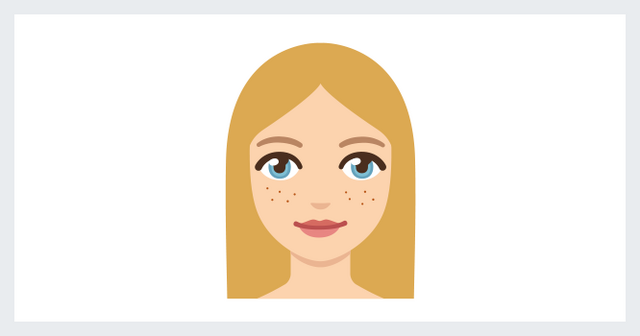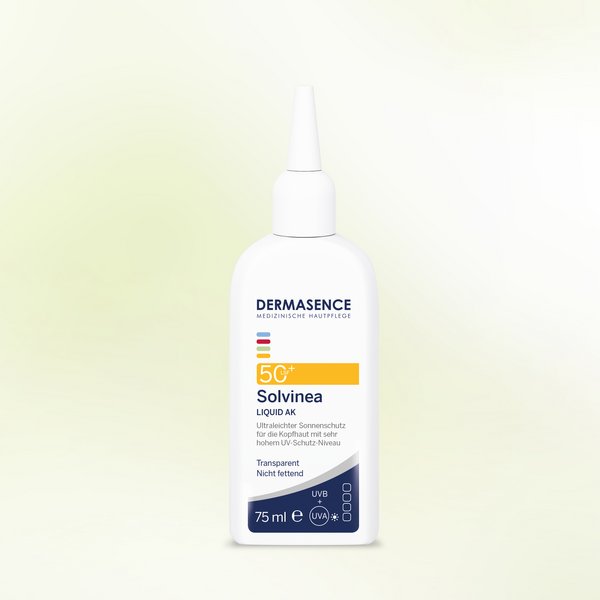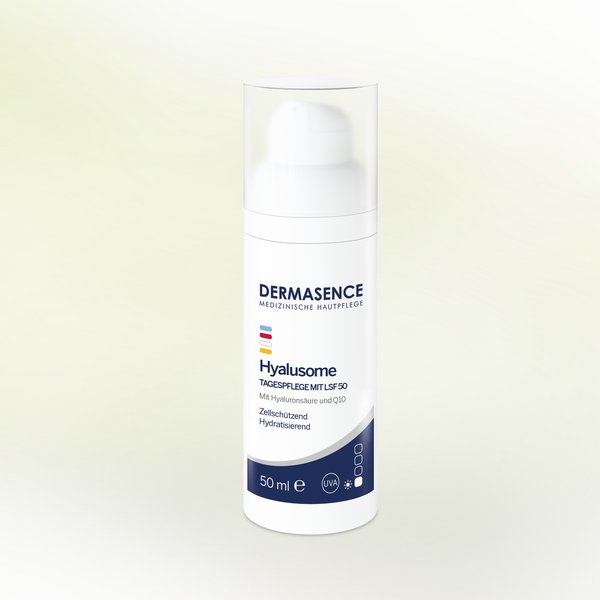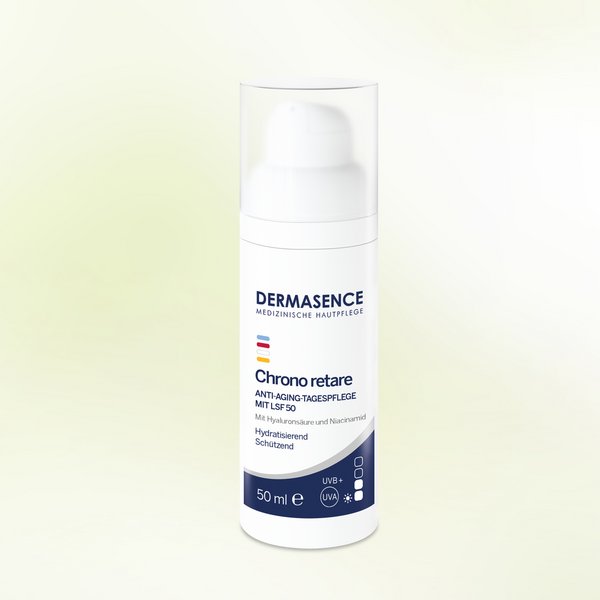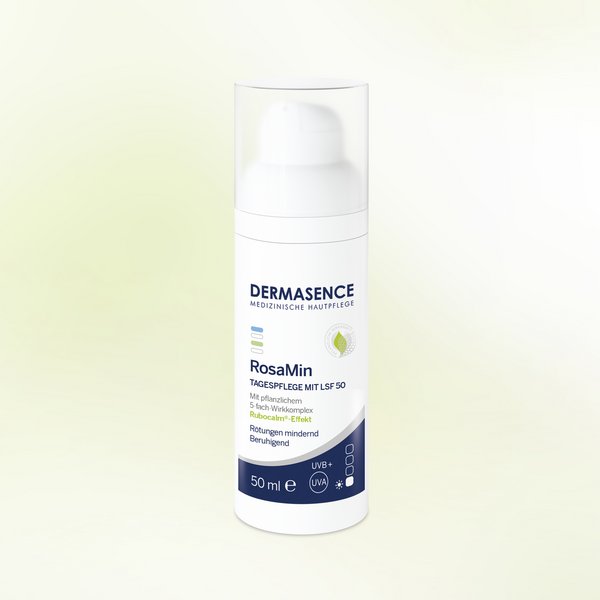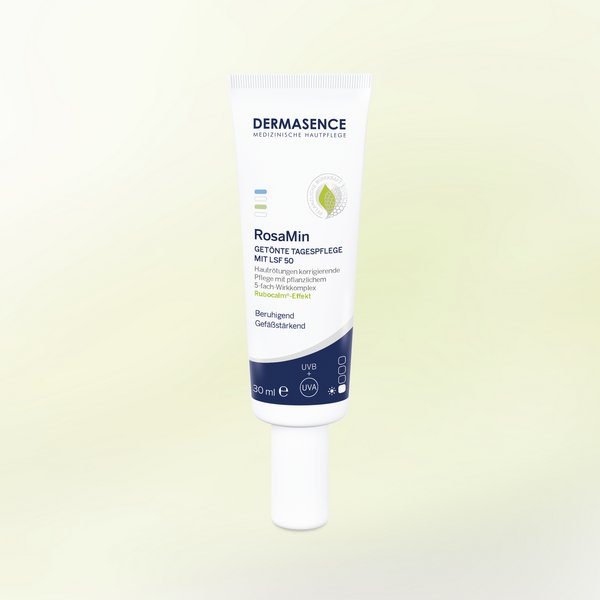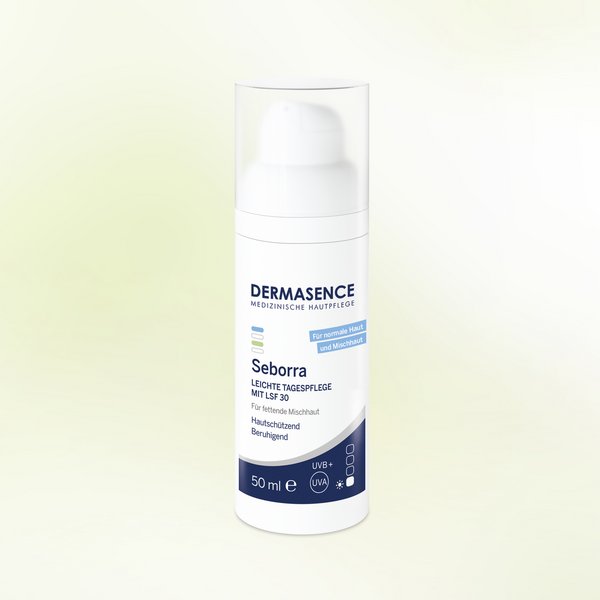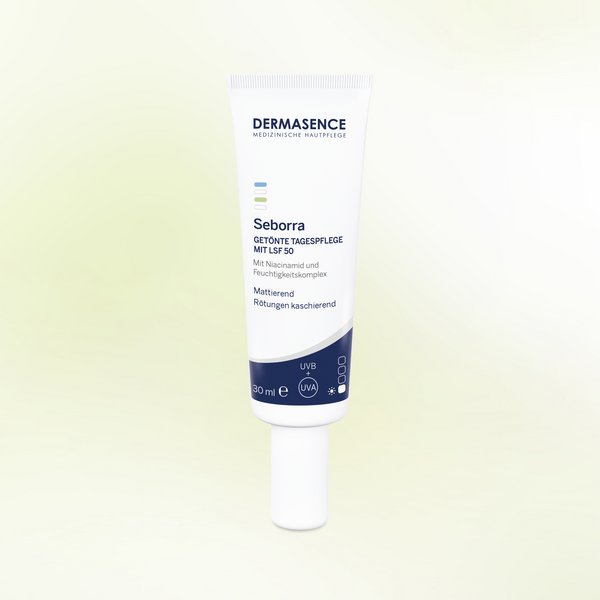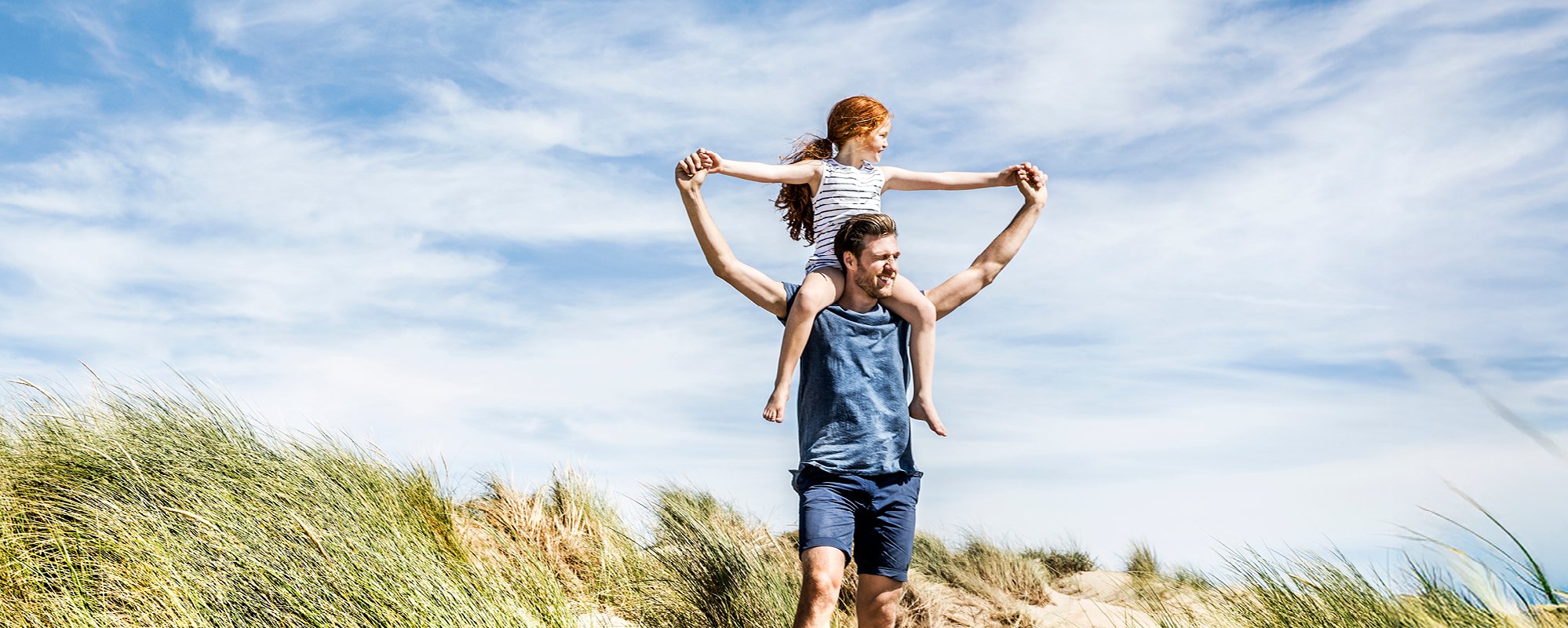
Sun Care
Summer, Sun, Solvinea - Effective sun care with maximum protection
Maximum sun protection with DERMASENCE
Enjoy relaxed sunny days with sun cream and other sun care products
Not only does bright sunshine lift the mood, but it unfortunately also raises the risk of sunburn, premature skin ageing and skin cancer. In order to prevent the health damage via UV radiation, it is important to take precautions, including:
- exposure to the sun in a responsible manner
- the use of sunscreens with an appropriate sun protection factor
- skin protection in the form of non-transparent clothing
These recommendations apply in particular to children's sensitive skin, but also to people who spend a lot of time outdoors, such as athletes.
Criteria such as skin type, age and areas of the body to be protected should all be taken into account when choosing sun creams, sun sprays or sun fluids with the appropriate sun protection factors. As a medical skin-care specialist, DERMASENCE is dedicated to protecting your skin adequately, thus keeping it healthy.
As a parent, you bear the weight of responsibility. You are tasked with protecting your children against illness, accidents and other avoidable suffering to the best of your knowledge and belief. This also includes protection against harmful UV radiation; after all, it is a well-known fact that sunburn in childhood significantly increases the risk of skin cancer.
Rest assured, you have a real skin specialist at your side with DERMASENCE. The sun care products Solvinea Baby SPF 50 and Solvinea Spray SPF 50+ are designed especially for children’s sensitive skin, and offer sun protection you can rely on! The high to very high protection with a sun protection factor of 50 or 50+ makes our Solvinea products ideal companions on sunny days.
Why does children’s skin need special protection? Children’s skin does not exhibit the same properties as adult skin until the child is twelve years of age. At birth, baby’s skin is much thinner and the skin’s own sun protection is not yet developed. Why is this? Sufficient levels of the brown pigment melanin, which absorbs light in the skin and thus protects against UV radiation, are not yet available.
Babies, in particular, should stay in the shade. As this cannot always be guaranteed and even parasols cannot provide 100% protection against UV radiation, additional protection in the form of sun cream is recommended.
What’s your sun protection type?
Every skin type has its own protection time: This refers to the period of time during which the skin can be exposed to the sun without reddening. This individual protection time can be prolonged by the correct application of sun cream and other sun care products.
Please note that the individual protection time cannot be extended repeatedly by applying sunscreen several times! Sun cream with a sun protection factor of 30 extends the skin’s own protection time once by a factor of 30. Repeated reapplication of sunscreen is necessary, but this only maintains the extended individual protection time.
Hair colour: red, light blond
Eye colour: bright (grey, green)
Other characteristics: very frequent freckles
Sunburn: always strong, painful
Tanning in the sun: no tanning
Skin's own protection: approx. 5 minutes
Extention of individual protection with SPF 30*:
approx. 5 min x 30 = max. 2,5 hours
Hair colour: blond to brown
Eye colour: blue, grey, green or brown
Other characteristics: frequent freckles
Sunburn: often strong, painful
Tanning in the sun: little to moderate
Skin's own protection: approx. 10 minutes
Extention of indivudual protection with SPF 30*:
10 min x 30 = max. 5 hours
Hair colour: darkbrown
Eye colour: brown, darkbrown
Sunburn: barely
Tanning in the sun: fast and deep
Skin's own protection: approx. 40 minuten
Extention of own protection with SPF 30*:
40 min x 30 = max. 20 hours
Hair colour: darkbrown to black
Eye colour: darkbrown
Sunburn: almost never
Tanning in the sun: fast, intense
Skin's own protection: approx. 60 minutes
Extention of own protection with SPF 30*:
60 min x 30 = max. 30 hours
DERMASENCE sun protection – ocean-friendly formulation
Current research suggests that sunscreens can cause significant damage to reefs. The reason for this seems to be the tried and tested UV filters which sun creams frequently contain. Oxybenzone (benzophenone-3) and octinoxate (ethylhexyl methoxycinnamate) protect the skin from the harmful effects of UV radiation. Unfortunately, these two substances are now also suspected of causing the dangerous coral bleaching that can lead to the death of entire coral reefs. As a result, they may endanger entire ecosystems and ultimately have an impact on climate change.
DERMASENCE products are free from both oxybenzone (benzophenone-3) and octinoxate

Why athletes should protect their scalps
Golf, beach volleyball and jogging are just a few examples of the many sports that take place primarily outside. Here, adequate protection is essential!
The scalp is an area of the body that is often overlooked when it comes to sun protection. This is despite the fact that sunburn – whether along the hairline or all over the head – increases the risk of actinic keratosis. This takes the form of reddish, brown or skin-coloured cornification disorders which are, at first glance, often confused by laypersons with dry, rough skin and are considered to be a precursor of white skin cancer (plate cell carcinoma).
Actinic keratosis ...
- develops more frequently from the age of 50
- is more common in men
- is favoured by cumulative sun exposure (i.e. a UV exposure over several decades)
The ultra-light fluid DERMASENCE Solvinea Liquid AK SPF 50+ helps to effectively prevent these clinical symptoms.
Solvinea – Waterproof UV protection:
Our Solvinea sun protection products offer waterproof UV protection in accordance with DIN EN ISO 16217:2022-02 and COLIPA Guidelines 2005, which remains effective even after contact with water: after 40 minutes in the water, the protective effect is reduced by a maximum of 50%. To ensure that the skin remains optimally protected, it is important to reapply the cream regularly – especially after swimming, drying off or heavy sweating.


